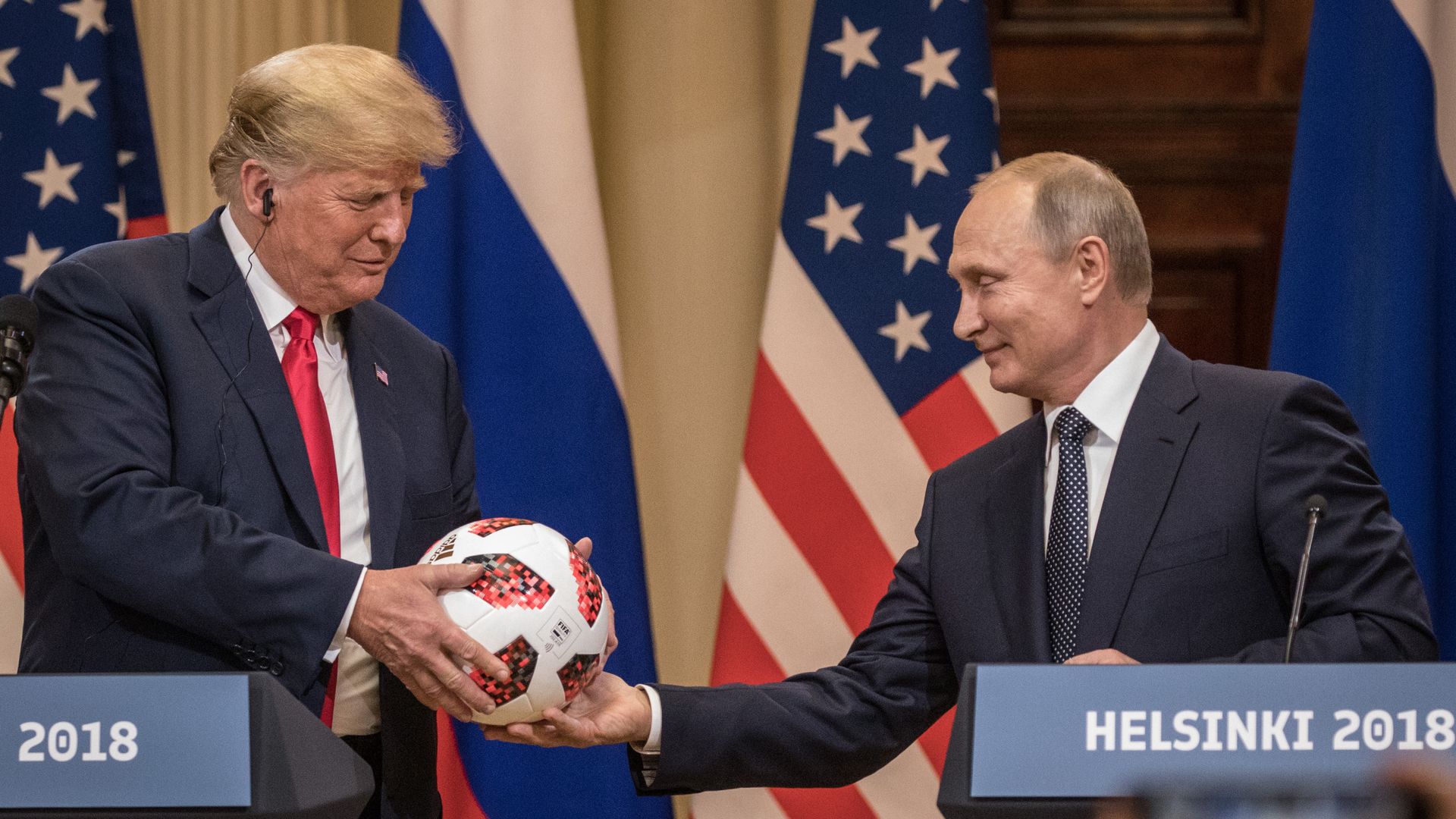Trump administration pushes for nuclear arms accord with Russia
Add Axios as your preferred source to
see more of our stories on Google.

Photo: Chris McGrath/Getty Images
Negotiations resumed in Vienna this week on a top Trump priority and potential election year twist: a U.S.-Russia nuclear agreement.
Why it matters: In the next several months, President Trump and Vladimir Putin could either sign a framework for the future of arms control or put the last major treaty constraining the world’s two largest nuclear arsenals on course for expiration in February.
- Trump has had a striking number of calls with Putin recently, and speaks often of wanting to avoid an "arms race."
What they’re saying: The man tasked with delivering a deal, U.S. arms control envoy Marshall Billingslea, spoke with Axios shortly after returning from Vienna.
- Billingslea presented Russia with America's conditions for a deal, based on a “clear mandate” from Trump.
- Now, Billingslea says, “the ball is in Russia’s court.”
The big picture: The Russians want to extend the 2011 New START treaty. The Trump administration is "ambivalent" about its looming expiration, Billingslea says, but will agree to an extension if Russia signs onto its ambitious framework for a future nuclear treaty.
- That treaty must enable more stringent inspections and, unlike past treaties, cover all nuclear weapons, including Russia’s new shorter-range systems.
- Crucially, in Billingslea’s view, it must constrain China, which is currently building up its far smaller arsenal.
- “The New START treaty is the last nuclear arms accord that can be conducted with the Cold War, bipolar mindset,” Billingslea says. “That approach is no longer applicable in a world where the Chinese Communist Party is arms racing.”


Driving the news: The Trump administration has abandoned its demand that China be involved in any nuclear talks. It's now aiming to reach a political accord with Russia, and then pressure China to join talks and eventually a treaty.
- “There has been a shift,” Billingslea acknowledges.
- It's been driven in part by Trump’s conversations with Putin, and perhaps by his desire for a nuclear summit before November — something national security adviser Robert O’Brien recently confirmed was a possibility.
Where things stand: Any deal appears a long way off. While Billingslea says the only question is "political will in Moscow," his Russian counterpart says the sides' priorities "differ significantly.”
- For one thing, Russia wants France and the U.K. involved in future multilateral talks, not just China.
- Billingslea also confirms that Russia raised “a range of issues with U.S. capabilities” in Vienna, but says Moscow's non-nuclear concerns — missile defense, NATO activities — aren't on the table for this particular deal.
What to watch: The Russians will likely come back with counterproposals, says Rose Gottemoeller, who served as the lead U.S. negotiator on New START.
- There can be complications on the U.S. side as well. Gottemoeller notes that the Air Force and Navy both expressed concerns during the New START process about allowing inspectors the sort of access Billingslea seems to be proposing.
- And while Billingslea says he'll only bring a good agreement back to Trump, it's clear the president wants a deal. “At some point, Trump might just say, 'get it done, you don’t have any more time,’” Gottemoeller says.
Worth noting: Joe Biden has said he'd extend New START if elected. Billingslea says that's no surprise, and he denies that it weakens his negotiating position.
- Any future administration will have to face the same reality, he says: “China is surging … and a bilateral nuclear arms accord does nothing to tackle that problem.”
Go deeper: The arms control era may be ending
